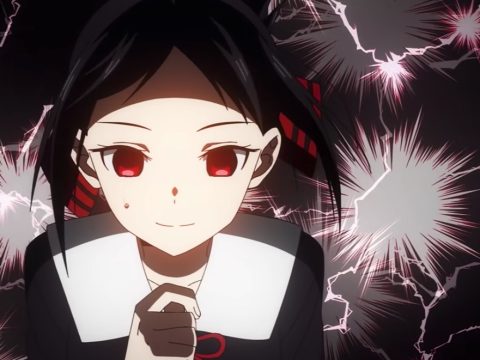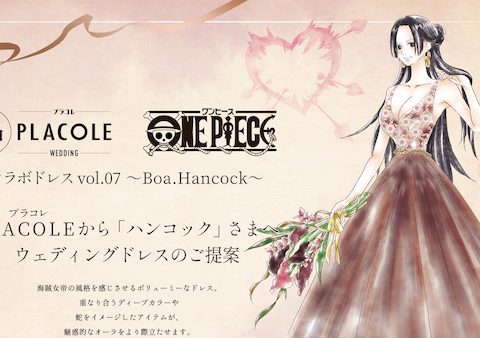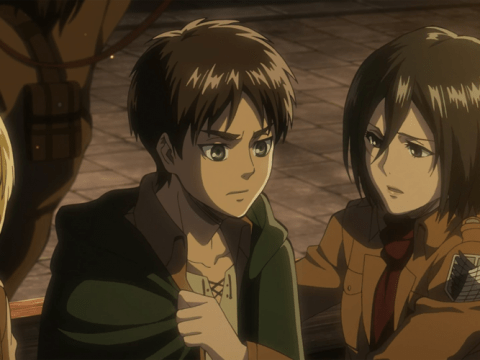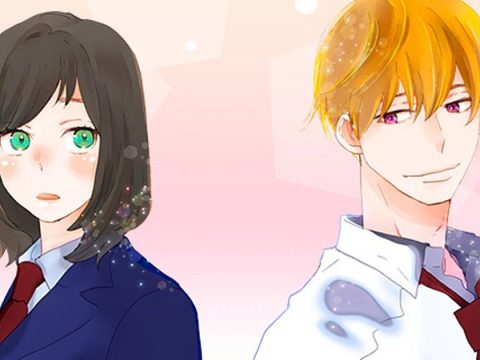
As I sit in a Jimbocho donut house drinking iced coffee, noshing on a cream cheese donut the last thing that should be on my mind should be Fyodor Dostoevsky… right? According to Futabasha’s Manga Action magazine maybe I and other students of manga culture and history should be considering the Russian great right now. 140 years after Dostoevsky’s novel was released in twelve monthly installments (strangely similar to the format modern manga and light novels are released) a manga version hit shelves. Two years later, Crime and Punishment has quickly earned the respect of this writer as I believe it is the best manga series going currently.
 Taking inspiration from the Russian classic Crime and Punishment and then placing the behemoth of a book into a modern metropolis, Ochiai Naoyuki retells Dostoevsky’s drama from the eyes of a struggling Japanese writer. In the 2006 remake Crime and Punishment ~A Falsified Romance~ Ochiai’s lead is an incredible talent with award winning abilities. Tachi recently placed as the Best New Writer in a major literary competition, but the stress of living up to his family’s goals of him becoming a powerful man has broken him on the cusp of greatness. He dropped out of college. However after moving to Tokyo he struggles with his identity and the duality of life in this surreal megalopolis. Despite being recognized for his tremendous potential, success does not come quite as easy, and life is a constant struggle. For Tachi Mikuro life is nothing but a battle, with his past and his moral fiber. He hasn’t been to work in four months and his dreams are a total mess filled with abuse, taunting, and the strong smell of blood. Tachi is alone and without direction in life right now. You could say he is a hikkikomori but that is only where his troubles start.
Taking inspiration from the Russian classic Crime and Punishment and then placing the behemoth of a book into a modern metropolis, Ochiai Naoyuki retells Dostoevsky’s drama from the eyes of a struggling Japanese writer. In the 2006 remake Crime and Punishment ~A Falsified Romance~ Ochiai’s lead is an incredible talent with award winning abilities. Tachi recently placed as the Best New Writer in a major literary competition, but the stress of living up to his family’s goals of him becoming a powerful man has broken him on the cusp of greatness. He dropped out of college. However after moving to Tokyo he struggles with his identity and the duality of life in this surreal megalopolis. Despite being recognized for his tremendous potential, success does not come quite as easy, and life is a constant struggle. For Tachi Mikuro life is nothing but a battle, with his past and his moral fiber. He hasn’t been to work in four months and his dreams are a total mess filled with abuse, taunting, and the strong smell of blood. Tachi is alone and without direction in life right now. You could say he is a hikkikomori but that is only where his troubles start.
Ochiai, like the Russian master, does not hide from social commentary in his manga. Tachi is only one of a handful of colorful social miscreants that A Falsified Romance details. However Ochiai does not do this as a last resort to help pay off gambling debts; instead, Ochiai attempts to illustrate that even after many generations the world is as disturbing as ever and there are many among us that might want to take justice into their own hands because they feel they have been blessed with the position to do so.
When readers are introduced to Tachi, the young man is awakened from a long stupor by heavy pounding on his apartment door. His mind filled with paranoia, he lashes out towards those who try to care for him. After a brief conversation with his sister Tachi stumbles out into the world, only to see a corrupt misguided populous that takes  advantage of the powerless. Disgusted with a scene where a high school girl solicits herself to a salaryman, he ends up confronting the John as he leads his potential partner towards a love hotel. This begins a chain of events that make Tachi question society and his place within it. He begins to question society’s ability to enforce justice. And he as a gifted man, aware of the wrong-doings that are transpiring, should be capable and empowered to punish those who have committed crimes. Furthermore, in his warped mind he initially believes he should even be rewarded for his duties.
advantage of the powerless. Disgusted with a scene where a high school girl solicits herself to a salaryman, he ends up confronting the John as he leads his potential partner towards a love hotel. This begins a chain of events that make Tachi question society and his place within it. He begins to question society’s ability to enforce justice. And he as a gifted man, aware of the wrong-doings that are transpiring, should be capable and empowered to punish those who have committed crimes. Furthermore, in his warped mind he initially believes he should even be rewarded for his duties.
Ochiai has Tachi experience crimes first hand. At first he just watches and listens into petty offenses. Then later he would study, practically stalk, evil-doers. Once he finds his mark, a heinous teenage clique leader who takes pleasure in bullying and pimping out the weaker girls in her circle, Tachi makes his move. He attempts to infiltrate the organization by working the weaker girls from within. If he could win over some of these girls then maybe he can understand his mark’s actions and eventually get closer to ridding society of this parasite. Heck, if things work out well enough he might be able to make a book out of this, and kill two birds with one stone.
Following in the formula used by Dostoevsky, Ochiai presents two sides to Tachi. He starts the series with the crimes Tachi witnesses, which escalate to having Tachi committing crimes in the name of justice. Then come the punishment arcs. Tachi tortures himself mentally and physically. The thought of him doing something so vile sent him to the hospital where the cycle could repeat itself•
 A Falsified Romance is not what you’d find in a Borders; this is a manga reader’s manga. Ochiai’s art, while stylized, is in the vein of Urasawa where his settings are hyper detailed and his character designs have heavy influences from realism. He also uses tone and shadowing on his characters to set a mindset for them that readers can decipher quickly. There is no moe. While there is some mild-nudity it is used exclusively to progress the plot, so there is no fan service to be found. Ochiai does his best to make this a drama that is faithful to Dostoevsky’s original while taking advantages of the pacing and layout tools that make manga a great medium for storytelling.
A Falsified Romance is not what you’d find in a Borders; this is a manga reader’s manga. Ochiai’s art, while stylized, is in the vein of Urasawa where his settings are hyper detailed and his character designs have heavy influences from realism. He also uses tone and shadowing on his characters to set a mindset for them that readers can decipher quickly. There is no moe. While there is some mild-nudity it is used exclusively to progress the plot, so there is no fan service to be found. Ochiai does his best to make this a drama that is faithful to Dostoevsky’s original while taking advantages of the pacing and layout tools that make manga a great medium for storytelling.
After four volumes, I have been challenged by Ochiai’s characters and visual presentation. Every new chapter reveals the duality of Tachi’s personality more and more, creating a complex individual struggle that forces readers to come back for more to see what the other side of Tachi is capable of accomplishing. The visuals alone are so expressive that I have started picking up the magazine to check out the art every other week. But is that enough to entice readers globally? –Possibly not. The US market is currently not interested in dramas of this caliber, as poor sales of Monster have shown. But who knows, maybe a college will try to use this version of Crime and Punishment as part of their curriculum. Sure would make Fyodor’s work seem relevant again.



![Lady Oscar: The Rose of Versailles [Anime Review] Lady Oscar: The Rose of Versailles [Anime Review]](https://otakuusamagazine.com/wp-content/uploads/2021/11/RoV_Vol2_Front_CoverArt_V1-480x360.jpg)

![Shikimori’s Not Just a Cutie [Manga Review] Shikimori’s Not Just a Cutie [Manga Review]](https://otakuusamagazine.com/wp-content/uploads/2021/05/shikimoris-not-just-a-cutie-v4-16-9-480x360.jpg)

